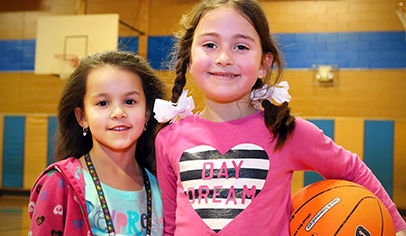7 Ways To Involve Students

Making students a part of your parent group’s work will help kids and adults alike.
You got involved for the kids, right? But chances are your parent group work is done without much input from students.
And that can be a lost opportunity. Not only can students play a vital role in letting their parents know about school events and fundraisers, they can also participate by influencing the kinds of events you hold or by being helpful volunteers in their own right.
A first step to involving kids is to start thinking of them as part of your team. Here are seven ways you can start doing that.
Ask Their Opinions
Students will care more about school activities your PTO sponsors if they have a say in them. Ask for a show of hands (or take a vote) on what to do for a family fun night, the theme for a student dance, or the design of new school T-shirts. If you’re planning a new playground, hold a focus group or ask students to draw what equipment they’d like to play on. Kids have great insights on what other kids will like. For example, they’ll be able to tell you what games will be popular at the upcoming carnival.
Join the PTO Today community (it's free) for access to resources, giveaways and more
Be a Familiar Face
Find a way to be in front of students and share what your parent group is doing. It could be by your president getting kids excited for your activities at school assemblies or, if your school is closed because of COVID-19, making video announcements families can view together at home.
Add an “S”
Update your bylaws to become a PTSO or PTSA to make student involvement part of your group’s identity. PTSOs and PTSAs are more common at the middle and high school levels than at elementary schools, and can be good opportunities for older students to develop leadership skills.
If you don’t want to change your bylaws, you can still include student representatives at a few PTO meetings throughout the year. Find out what’s on their minds. It will help shape your planning so you can create school activities and events that are more meaningful to them.
Empower Them To Do Good
Kids today are passionate about making the world a better place. Your parent group can help them be more involved in issues they care about. Invite students to approach your group with ideas, whether it’s forming a club the group sponsors or helping them with a single community service project like a toy drive. Many PTOs have sponsored student environmental clubs and kindness clubs, as well as projects to help families in need or shelter animals. Giving students an opportunity to take leadership roles with clubs or projects helps them learn responsibility and valuable life lessons.
Ask for Their Help
If students are old enough, they can help parent volunteers with making and delivering candygrams, monitoring field day stations, and setting up and cleaning up at your school events. They can serve as ushers, ticket collectors, and food servers. Kids will enjoy pitching in and being part of the big event.
Talk with your principal first to find out if volunteers will need background checks to work directly with students, and get approval on any tasks that might cut into students’ classroom time. If it doesn’t work to have students volunteer, ask teachers if they can make posters for upcoming school events or work with students to write thank-you notes to event sponsors.
Hold a Contest
If student support of your product or collection fundraisers is lacking, encourage healthy competition among classrooms or grades. Award a popcorn party or an extra recess to the winning group. Groups have held student competitions to raise money in penny war fundraisers, as well as to increase food donations for food banks.
Make It Fun
Let’s face it—many students might have the impression that your parent group is just for, well, parents. To keep kids interested, it needs to be fun for them.
At school assemblies, involve students by asking them to answer questions and give free school T-shirts to a few who raise their hands. Award small trinkets like novelty erasers or school logo bookmarks to kids who contribute in a special way.
At meetings, welcome students to share opinions on an agenda item (but don’t expect younger students to pay attention the whole time). Put out games and coloring books, or let them go to the playground (with adult supervision) when you move on to other business.






















